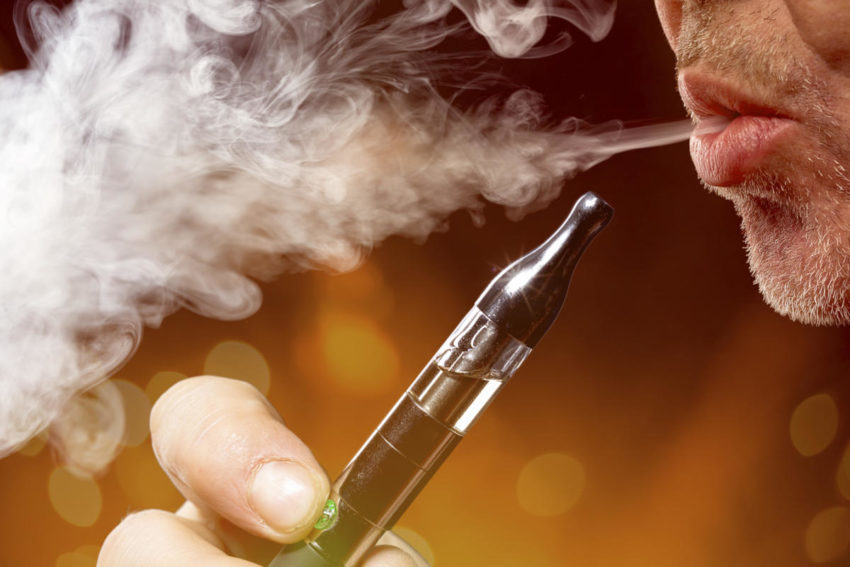Action by the U.S. Food and Drug Administration (FDA) May 5 to regulate e-cigarettes and vaping in the same way as cigarettes and smokeless tobacco is “a welcome step toward reducing the nation’s cancer burden,” said Ian M. Thompson Jr., M.D., director of the Cancer Therapy & Research Center (CTRC) at the Health Science Center. The CTRC is one of the state’s four NCI-designated Cancer Centers.
E-cigarettes and vaping are trendy and tempting to young people and may be a gateway to traditional cigarettes, which include cancer-causing tar and chemicals, and a lifetime of nicotine addiction. “If you get a young person used to inhaling smoke, it doesn’t take a rocket scientist to predict that they are at higher risk to start smoking with tobacco products,” Dr. Thompson said.
The FDA said it would ban e-cigarette sales to Americans under 18.
“This ruling makes it harder for children to gain access to e-cigarettes and dramatically prevents and decreases e-cigarette-related toxic effects and cancer risks,” said CTRC oncologist Anand Karnad, M.D., professor of medicine and chief of the Division of Hematology-Oncology in the School of Medicine. “Hookah bars proliferate and teens and young adults are increasingly attracted to such places under the mistaken impression that looking ‘cool’ while inhaling allegedly ‘harmless’ smoke is a great pastime. Wrong! Tobacco kills.”
“With smoking vapors that are inhaled, it is unclear exactly what the most harmful components are,” said Steven R. Bailey, M.D., professor and chief of the Janey and Dolph Briscoe Division of Cardiology at the Health Science Center. “While I recognize that some of the tars and components are not there, we haven’t studied well enough the ones that are there and their impact on the body, including the heart. It is certainly possible that these products have many of the same effects on atherosclerosis [hardening of the arteries] that traditional cigarettes have, and until they are better studied, it’s reasonable to limit access to e-cigarettes.”
Public health experts have argued whether e-cigarettes and vaping, which became available about 10 years ago, are a way to help people stop smoking or are a gateway to conventional cigarettes. Dr. Karnad said the latter is true and applauded the FDA’s action.
“Smoking anything is bad,” he said. “Effective and sustained programs to stop childhood and teen smoking will have an even more profound impact on reducing cancer-related mortality and morbidity than the next new drug on the market to treat cancer. Prevention is much more effective than cure in reducing morbidity and mortality.”
Smoking is associated with cancer, heart disease, stroke, asthma and premature death.
“This is a great day for the health of the nation, and we need more actions like this from a health standpoint to reduce the cancer burden,” Dr. Thompson said.
“A sustained effort to end the scourge of tobacco-related related cancers is the single most important aspect of decreasing cancer-related deaths,” Dr. Karnad said. “Such efforts are equivalent to the ‘moonshot’ efforts to end cancer being proposed, and must be an essential elements of a global cancer control program.”


